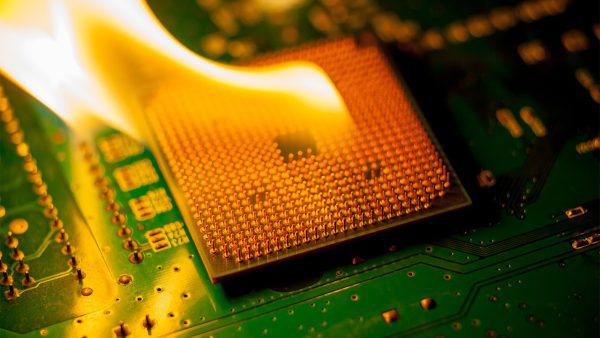
A Guide to PC Temperature Control
Your PC is a powerful machine, but with great power comes great responsibility…to keep it cool! Excessive heat can throttle performance, shorten component lifespan, and even lead to hardware failure. Here’s a comprehensive but simple guide to PC temperature control, ensuring your machine stays frosty and runs smoothly:
Understanding the Threats: What Generates Heat?
i. The CPU (Central Processing Unit): The brain of your PC, the CPU generates significant heat during operation.
ii. The GPU (Graphics Processing Unit): For gamers and creative professionals, the GPU is a heat-generating powerhouse.
iii. Other Components: Hard drives, RAM, and even power supplies all contribute to the overall heat within your PC case.
Keeping it Cool: Essential Cooling Solutions
1. Air Cooling: The most common solution, air coolers use a combination of heat sinks and fans to dissipate heat away from the CPU and other components.
2. Liquid Cooling: For high-performance PCs, liquid cooling systems use water or coolant to absorb heat and transfer it to a radiator outside the case.
3. Proper Airflow: Ensuring good airflow within your case is crucial. Intake fans draw in cool air, while exhaust fans expel hot air. Adequate ventilation is vital.
Maintaining Optimal Temperatures: Monitoring and Adjustments
1. Temperature Monitoring Software: Several free and paid software options allow you to monitor CPU, GPU, and system temperatures.
2. Cleaning is Key: Dust buildup on fans and heat-sinks can significantly impact cooling performance. Regularly clean your PC’s interior with -compressed air.
3. Undervolting (Optional): For advanced users, undervolting reduces the voltage supplied to your CPU or GPU, potentially lowering temperatures without sacrificing performance. (Note: Undervolting can be risky if done incorrectly.)
Preventing Overheating Disasters: Warning Signs and Solutions
1. Frequent Shutdowns: If your PC unexpectedly shuts down, it might be overheating. Check your temperatures and ensure proper airflow.
2. Performance Throttling: Your PC might experience performance drops due to thermal throttling, a self-preservation mechanism to prevent overheating damage.
3. Blue Screens of Death (BSOD): These can sometimes be caused by overheating.
Taking Control of Your PC’s Temperature
By understanding heat sources, implementing proper cooling solutions, and maintaining a clean and well-ventilated environment, you can ensure your PC stays cool and runs optimally for years to come.
Do you have any battle-tested tips for keeping your PC cool? Have you encountered any overheating issues? Share your experiences and advice in the comments below! Let’s keep our PCs running smoothly and frosty!
FAQs: Conquering the Heat – A Guide to PC Temperature Control
Q: My PC seems to be running hot. Is this a problem?
A: Absolutely! Excessive heat can throttle performance, shorten component lifespan, and even lead to hardware failure.
Q: What parts of my PC generate the most heat?
A: The CPU and GPU are the main culprits, but hard drives, RAM, and power supplies also contribute.
Q: Air cooling vs. liquid cooling? Help me decide!
A: Air cooling is the most common and cost-effective solution for most users. Liquid cooling offers superior performance for high-end PCs but requires more maintenance.
Q: How can I monitor my PC’s temperature?
A: Several free and paid software options allow you to monitor CPU, GPU, and system temperatures.
Q: My PC is dusty inside. Should I clean it?
A: Absolutely! Dust buildup on fans and heat-sinks can significantly impact cooling performance. Regularly clean your PC’s interior with compressed air.
Q: Undervolting sounds scary! Is it safe?
A: Undervolting can be risky if done incorrectly. It’s an optional technique for advanced users who understand the potential benefits and risks.
Q: My PC keeps shutting down unexpectedly. Could it be overheating?
A: Yes, frequent shutdowns can be a sign of overheating. Check your temperatures and airflow.
Q: Let’s share our PC cooling wisdom!
A! Whether you’re a seasoned PC warrior or a new recruit, share your tips, tricks, and experiences in the comments below. Together, let’s keep our PCs cool and running smoothly!

Leave a Reply